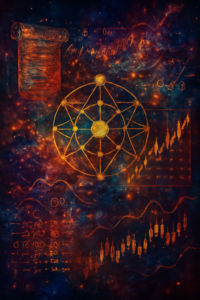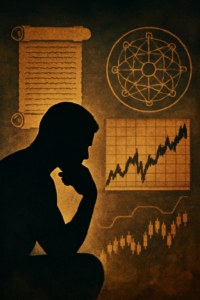The Strategic Intersection of Poker and Algorithmic Trading in Forex EA

Introduction
In the realms of both poker and algorithmic trading in forex EA, strategic thinking, risk management, and psychological resilience play pivotal roles. While they may seem worlds apart, these two activities share striking similarities that make them fascinating to compare.
1. Strategic Decision-Making
Poker:
Poker is a game of strategy where players must make critical decisions about when to bet, call, fold, or raise. Each decision is influenced by the cards they hold and the behavior of their opponents, requiring a deep understanding of strategy and human psychology.
Algorithmic Trading (Forex EA):
In algorithmic trading, decisions are made based on pre-defined rules and strategies coded into an Expert Advisor (EA). These rules are developed through extensive analysis of market conditions and indicators, ensuring trades are executed with precision and consistency.
2. Probability and Risk Management
Poker:
Successful poker players excel at assessing probabilities and managing risk. They adjust their bet sizes according to the likelihood of different outcomes, carefully weighing potential gains against potential losses.
Algorithmic Trading (Forex EA):
Forex EAs rely on statistical analysis and historical data to estimate the probabilities of market movements. Risk management tools such as position sizing and stop-loss orders are integral to minimizing losses and protecting investments.
3. Emotional Discipline
Poker:
Poker demands emotional discipline. Players must remain calm and avoid impulsive decisions, as emotional reactions can lead to significant losses.
Algorithmic Trading (Forex EA):
Algo trading removes the emotional aspect by executing trades based on logic and pre-set criteria. However, developers and users must maintain discipline, trusting the algorithm and refraining from overriding it due to emotional impulses.
4. Adaptability and Continuous Improvement
Poker:
Poker is a dynamic game where players must adapt their strategies based on opponents’ behavior and game dynamics. Continuous learning and refinement of skills are essential for long-term success.
Algorithmic Trading (Forex EA):
Markets are constantly evolving, and so must the algorithms. Regular updates and optimizations are necessary to keep the EA effective in changing market conditions, requiring traders to monitor performance and adjust strategies as needed.
5. Use of Information and Data
Poker:
In poker, players gather information from their opponents’ actions, betting patterns, and table dynamics to make informed decisions.
Algorithmic Trading (Forex EA):
EAs utilize market data, technical indicators, and historical trends to inform trading decisions, leveraging vast amounts of information to identify profitable opportunities.
6. Competitive Nature
Poker:
Poker is inherently competitive, with players striving to outsmart their opponents and win the pot.
Algorithmic Trading (Forex EA):
Trading in the financial markets is equally competitive, as traders aim to outperform others and achieve profitable trades.
7. Bluffing and Market Sentiment
Poker:
Bluffing is a strategic tool in poker, where players deceive opponents about the strength of their hand to influence decisions.
Algorithmic Trading (Forex EA):
While EAs don’t bluff, understanding market sentiment and recognizing false signals or manipulations by other traders can be akin to identifying bluffs in poker.
Conclusion
The parallels between poker and algorithmic trading in forex EA highlight the strategic and analytical mindset required for both activities. Whether you’re at the poker table or navigating the forex market, the skills of strategic decision-making, risk management, and emotional discipline are invaluable. Embrace these similarities to enhance your approach and achieve success in both arenas.




